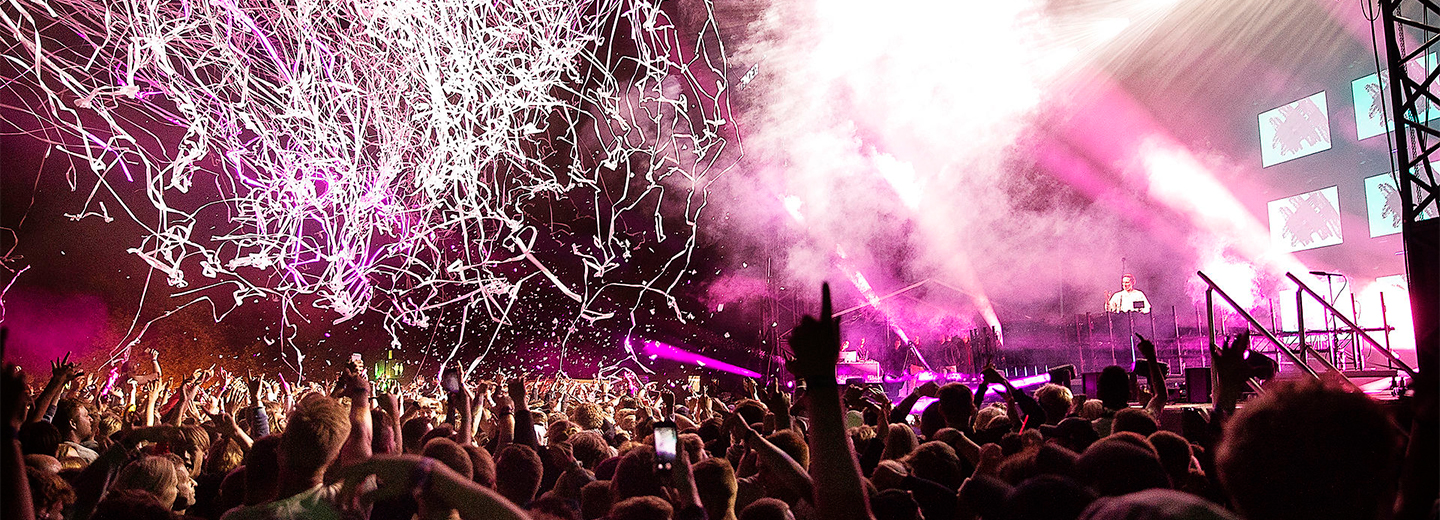
"It’s just Roskilde”: New research examines safety and transgressive behavior at Roskilde Festival
Many guests associate the festival experience with freedom and community. But the festival tolerance is stretched to the limit when transgressive behavior occurs, which can be explained by the widespread tolerance and kindness of the festival culture. A new research report by researchers from SDU, tells about safety and transgressive behavior among festivalgoers at Roskilde Festival.
In 2018 and 2019, researchers from SDU conducted a study of safety and transgressive behavior at Roskilde Festival. The study is based on interviews with over 150 festival guests aged 16-27. The study paints a picture of the overall experience of the festival as safe, but several guests, however, report on unsafe experiences with theft, drugs and transgressive sexual behavior. The study has resulted in the research report "It’s just 'Roskilde": Tolerance meets transgressive behavior in the festival culture.
A social safety net
Some media gives special attention to violence and rape at the festival. Festival guests do not recognize this media image. Guests connects the festival experience with freedom, openness, tolerance and community. They borrow camping equipment, share alcohol and food, gives strangers money, and takes care of each other when others are in trouble. The social safety net is portrayed as Orange Feeling and, together with the volunteers in orange vests, becomes central to the experience of safety
The study shows that there is a festival culture at Roskilde Festival that promotes solidarity, care and safety. Culture here means a behavior that is practiced, discussed and shared by the interviewees in the study.
In 55% of the survey interviews, theft is associated with unsafety. Theft of camping equipment is largely unacceptable by festivalgoers. This seems to create a slippery slope that escalates into stealing things of greater value such as music systems and personal belongings, and especially theft from inside the tent is experienced as transgressive and unsafe. It is a common feature that these episodes are handled internally by festival participants without major conflicts. They are rarely reported.
In 37% of the study's interviews, festivalgoers portray drugs as unsafe, and drug-affected festivalgoers are perceived as unkind, exaggerated and violent. Interviews tell of several guests who have been "drugged" without anyone knowing the extent. Drugs thus create insecurity and fear among festivalgoers.
Develops safety strategies
In 2017, according to the festival's Take Care survey, 20% of female guests experienced being touched in an unpleasant way. Transgressive behavior occurs, e.g. sexualizing beer bowling rules that stamp "dislike" on women's bodies, in the worst examples, festivalgoers enter other people's tents without permission. However, this behavior is practiced only by a minority of male guests in particular.
The female festivalgoers develop a range of safety strategies against abusive behavior and the unsafety of darkness on the camping paths, which seems to avert conflicts and reviews. At Roskilde Festival there is a special festival culture that creates security and community, where guests like to share festival equipment side by side with transgressive behaviors that are supported by the widespread tolerance and kindness of festival culture, and although no one wants to be stolen from, they also do not want to ruin the festival experience. What happens just happens and is commented with "It's just Roskilde".
In the report, the researchers report on the results of the study and also contribute with recommendations such as extra light on the campsite's outer areas, more volunteers at night who increase the opportunities to seek help, as well as new, safety-promoting campaigns and suggestions for qualitative research.
Meet the Reseacher
Annette Michelsen la Cour is Associate Professor at the Department of Sociology, Environmental and Business Economics. She has a background as a cultural sociologist with a research area in body, gender, festivals and civil society. The study was conducted in collaboration with Mette Kousholt(cand. soc.), Malthe Rye Thomsen(cand. soc.), Emilie Holse(cand. soc.), Helle Rotbøl Randløv(cand.soc.), Lasse Clemmensen(cand. soc.), Nicoline La Cour and Frej Arnfred.